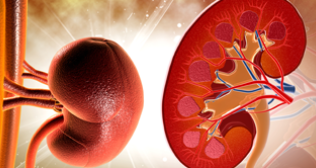
World Heart Day: Save Your Kidneys To Protect Your Heart
Dr. Sanjeev Gulati, Principal Director, Nephrology and Kidney Transplant at Fortis Hospital Vasant Kunj
The prevalence of chronic kidney disease (CKD) is increasing and currently, it is believed that 15-20 out of every 100 people have some stage of it. This disease is also now emerging as the 5th leading cause of death worldwide. Kidney disease is a silent killer and heart disease is among the commonest causes of death in these patients. Data from the registry of the Indian Society of Nephrology shows that diabetes and hypertension are the leading causes of both heart disease as well as chronic kidney disease. Both diabetes and hypertension are lifestyle diseases and are to a large extent preventable. Studies have shown that patients with weaker kidneys are at a greater risk of heart disease: the weaker the kidneys the greater the risk. Hence, any measure that can protect or improve your kidney function can lower the risk of heart disease.
Studies have shown that a persistent and ongoing knowledge gap exists about heart disease as well as chronic kidney disease and the close connection between the two. Most of these patients who have a heart attack do not even know that they have underlying CKD. This has been intensified by the rampant spread of social media platforms like Facebook, YouTube, Instagram, and Twitter. The COVID-19 pandemic resulting in lockdowns has further accelerated the growth of social media. The commercial nature of these platforms often results in the spread of content that is not proven to be true by scientific methodology. The only measure of success in social media is the popularity of the post and the number of followers-- both of which can be manipulated by commercial tools like boosting. A lot of this information would not hold water if tested by standard scientific methodology. The poorly informed people and patients find it challenging to access scientifically authentic and validated information. This is especially true for developing countries like India where there is a proliferation of quacks and untested therapies, and regulatory mechanisms are lax. A significant number of them often land up in the hands of these quacks losing precious time as well as money. The widening knowledge gap is hampering the fight against kidney disease and increasing the inherently associated mortality. Thus, bridging the knowledge gap is the key to achieving kidney health for all.
Healthy lifestyle choices can help to improve your overall health and thereby lower your risk of kidney disease and heart disease. The following healthy lifestyle choices are a great way to start:
- Don’t smoke. If you smoke, quitting now is the most important step you can take for your heart health
- Maintain a healthy blood pressure, cholesterol, and blood sugar level
- Maintain a healthy weight. Check with your doctor to learn more about body mass index and to find out what’s right for you
- Eat a healthy diet. Avoid saturated fats and excess salt
- Drink plenty of water and fluids to keep hydrated, but only drink alcohol in moderation
- Try to get 30 minutes of exercise, 4 to 5 times a week. Just a half-hour of walking each day will make a big difference. Regular yoga has also been found to be beneficial and it also acts as a stress buster.
Thus, an effort needs to be made at all levels of society to address the growing epidemic of heart disease and kidney disease, and bridging the knowledge gap is the key to achieving this.



















